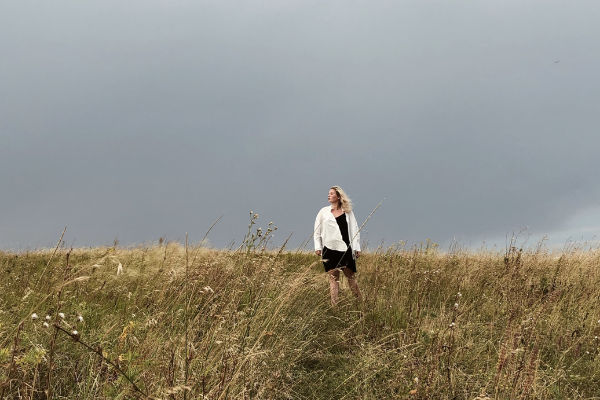“The worst day of my life was 24 February, when I woke up to a message from my friend in Kyiv. They were under attack,” Anastasia says, as she reflects on the Russian invasion of Ukraine. She spent that first day hooked to media outlets she trusted.
Anastasia was determined to protest and packed a bag with all her necessities in case she got arrested: “I knew people would be there and that we wouldn't support this insanity.”
Thousands of Russians protested every day and thousands were arrested. “But nothing changed – my friends in Ukraine still had to live in bomb shelters,” she recounts tearfully. "I just can’t believe that it’s possible to start a war in the 21st century."
Freedom forbidden
All non-state-owned media in Russia were shut down; anyone acknowledging the war was labelled a terrorist. “Words like ‘war’, ‘peace’ and ‘Ukraine’ and any indication that you do not support Putin are forbidden,” Anastasia explains.
"I still had hope that we could change something. All my friends, colleagues and everyone I follow on social media shared my sentiments so I thought it was common sense."
However many Russians see the conflict differently. “My second-worst day was when I realised that the majority of my country has the opposite opinion. I was afraid of the crowds, I couldn’t even ride a bus. Everyone I met became a threat.”
After nearly 50 days of siege, Ukraine has garnered global admiration, lauded for its courage in their fight for freedom. Yet in Russia, the opposite is true. “Freedom in Russia became a forbidden word long ago. By the end of February, I felt like I lost my country.”
Broken bonds
On Sunday, Anastasia received some heart-rending news. She had kept close contact with a friend from Kyiv, frequently exchanging news and supporting each other. "He never showed any hatred towards me."
That was until the images of atrocities committed in Bucha surfaced. “At that moment he lost it and blamed us for staying silent and doing nothing. I can't argue with the fear, grief and horror they are going through every day." Yet Anastasia feels that a chasm has opened in their friendship.
Related News
- Russian opposition leader Navalny faces 9 more years in prison
- ‘Hitler destroyed my childhood, Putin my old age’: Elderly women in Ukraine
- ‘I’m in the right place’: 20-year-old Ukrainian journalist fights for her country
Like in many countries today, in Russia there is also a chasm between those living in big cities and those residing outside. Anastasia stressed that “People in Saint Petersburg, Moscow, Kazan and other big cities are well aware of what’s happening in the world. The quality of life is much higher there, people are educated, salaries are two to three times higher."
Yet outside of large urban centres it is a different story. "My colleague from Vladivostok, 9146 km from the capital, arrived in Moscow in the first week of the war. She was shocked when she saw protests because back home most of the people were unaware that there was even a war.”
Many believe the Kremlin's claim that the army is conducting a “special military operation” to save Russia. “But by now, I guess most people know, and that is even worse. Previously we could say that it was Putin’s war. Now it’s obvious that people justify his actions.”
Life with sanctions
The EU's economic sanctions on Russia have become part of everyday life. “A month ago, I could list the sanctions and their consequences. Now it’s as if the life we knew was always sanctioned. Products that used to be imported have been substituted." Anastasia had hoped that the sanctions would influence the course of action. “Instead, people just adapted."
She spoke of the continued resistance of some Russians to the war: "It must be stopped and Russians fight it every day. We speak up, even though there is no freedom of speech, no independent media, and criminal prosecution for every act of defiance. I do believe in Ukraine, in its unity, in its people.”
Anastasia has visited Ukraine three times and even dreamed of moving there after her graduation. “I never experienced anything negative about the fact that I'm Russian but now I’m not sure if I’ll ever be able to go there again.”
Anastasia has since fled her home country, making her way to Armenia and continuing to Georgia. Crossing the border was hassle-free, with no questions asked.
"I must help in any possible way. Moving abroad opened many opportunities to volunteer and help with humanitarian aid," she concludes.

